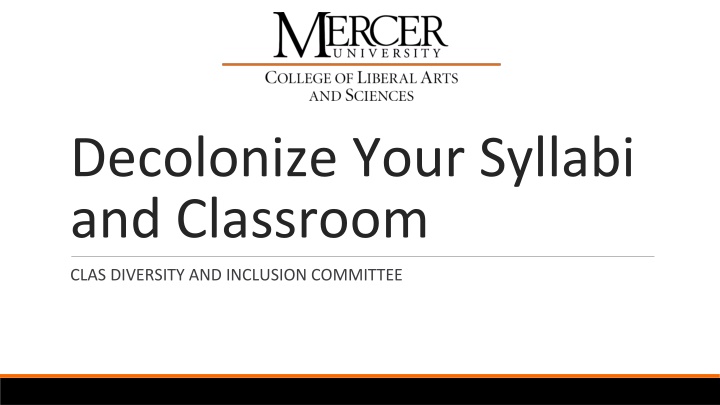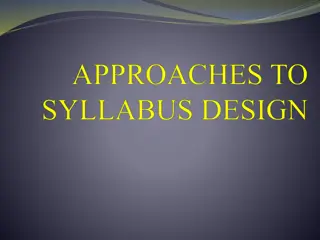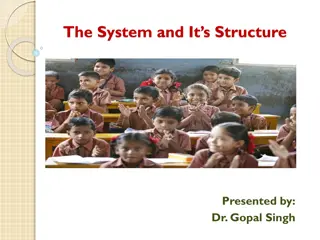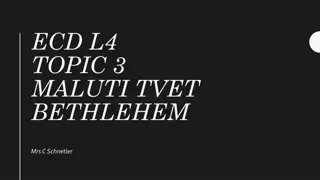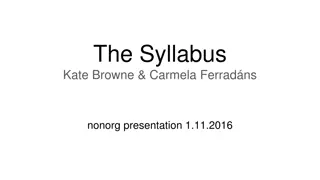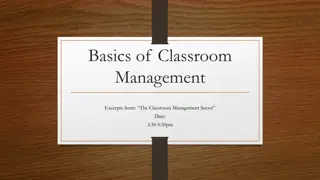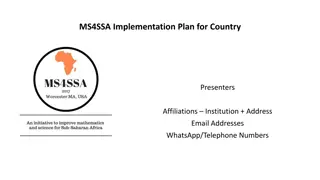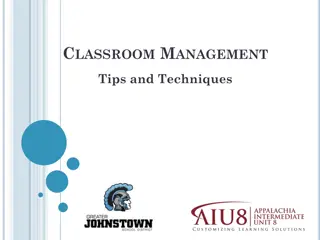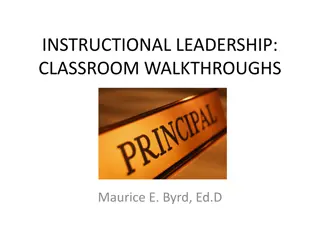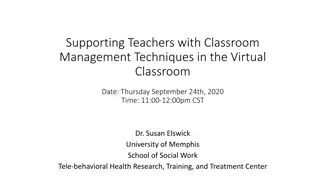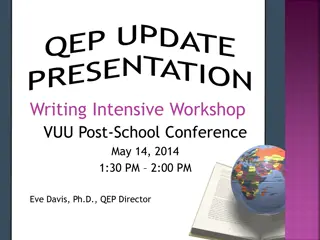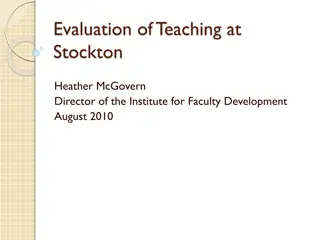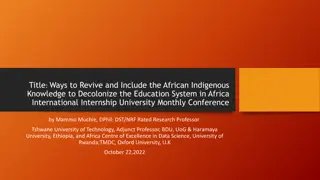Decolonize Your Syllabi and Classroom Workshop Overview
Explore the importance of decolonizing your syllabi and classroom to create inclusive environments. Understand the core concepts of diversity, inclusion, and decolonization in education. Learn how to rethink and reconstruct your course to amplify diverse voices and challenge colonial hierarchies. Discover the benefits of decolonizing your syllabus for student learning and expanding your scholarly repertoire.
Download Presentation

Please find below an Image/Link to download the presentation.
The content on the website is provided AS IS for your information and personal use only. It may not be sold, licensed, or shared on other websites without obtaining consent from the author.If you encounter any issues during the download, it is possible that the publisher has removed the file from their server.
You are allowed to download the files provided on this website for personal or commercial use, subject to the condition that they are used lawfully. All files are the property of their respective owners.
The content on the website is provided AS IS for your information and personal use only. It may not be sold, licensed, or shared on other websites without obtaining consent from the author.
E N D
Presentation Transcript
Decolonize Your Syllabi and Classroom CLAS DIVERSITY AND INCLUSION COMMITTEE
Workshop Overview The purpose of this workshop is to provide and share with one another tools to make your syllabus and your classroom environment reflective and inclusive of diverse perspectives. We will do this by: 1) Understanding the benefits of creating a diverse and inclusive classroom environment and the effects on students learning. 2) Critically examining our syllabi to ensure our readings come from a diverse range of authors (in terms of race-ethnicity, nationality, sexual orientation, gender, etc). 3) Creating or re-working a class assignment to making it inclusive and representative of the diverse world we live in.
Core Concepts What does it mean to be inclusive in education? Diversity without inclusion isn t enough and it s potentially harmful. We want to recognize the fact of diversity in our country and classrooms, but also honor and value that diversity. Inclusion is building and creating collaborative and safe learning environments that reflect and honor the diversity of students. How has education been colonized ? Questioning universal knowledge and normative standards for knowledge acquisition, evaluating student learning, and primarily centering white, gender normative, heterosexual people s experience in the creation of educational materials. Legacy of Western imperialism and the impact of colonialism on social relations, knowledge, and power inequalities Creation of otherness Link between inclusion and decolonizing inviting in all perspectives and all students
What does it mean to decolonize? Decolonizing your course Recognize knowledge is created. There have been historic, systemic ways in which people of color and other visible and nonvisible minorities have been marginalized from the production of knowledge. Rethink, Reframe, and Reconstruct to make courses better and more inclusive. Expand notions of good and/or canonical literature Elevate multiple voices, experiences, and ways of being in the world Consider how different frameworks and the amplification of diverse voices can yield new knowledge and understanding Critically consider the ways in which the university structure reproduces colonial hierarchies. Confront, challenge, and reject the status quo Identify and practice alternatives that are not rooted in inequities Reexamine what works in your classroom and what does not. Try something new. Lay the groundwork to build community rather than competition.
Benefits of decolonizing your syllabus Students will be exposed to different ways of thinking and problem solving The material will resonate with more students in your classes. Rather than having a syllabus that speaks of and to a social majority, decolonizing your syllabus will reflect different positionalities and reach a broader range of students in your class. Decolonizing your syllabus will expand your repertoire as a scholar and stretch your ways of thinking about your own discipline.
Student Outcomes Students will feel empowered to voice ideas, philosophies, and epistemologies from their own cultural backgrounds and compare them with what they are learning in class. Studies have shown that students learn better when their particular realities are reflected in classroom assignments and readings. Positive classroom climates and teaching practices have been shown to improve persistence and academic and emotional development among diverse college students. All students will benefit from a diverse range of perspectives. Constructing a diverse and inclusive classroom environment and course content will best prepare students in whatever profession to better navigate their workplace environments.
Strategies for decolonizing your teaching Syllabus strategies Examine the Decolonizing checklist and include as many strategies as you can in your courses. Consider a Diversity and Inclusion Statement in your syllabus. Ensure that at least half of the authors in your syllabus are people of color, women, or other marginalized voices in the academy. Classroom strategies In your class examples, include scenarios or problems that are reflective of heterogeneous communities and include a plurality of voices. Offer examples that reflect gender, sexuality, class, and racially diverse names, pronouns, and situations.
References Decolonizing SOAS (2018, May). Retrieved October 7, 2020 from https://blogs.soas.ac.uk/decolonisingsoas/files/2018/10/Decolonising-SOAS-Learning-and-Teaching-Toolkit- AB.pdf Decolonize Sussex. (n.d.). Retrieved October 19, 2020, from https://sussexstudent.com/campaigns/decolonize-education Decolonizing the Classroom: Step 1. (2019, April 11). NCTE. https://ncte.org/blog/2019/04/decolonizing-the-classroom/ Decolonizing our Teaching and Learning: A Short Guide to an Unsettling Process (n.d.). Retrieved October 10, 2020 from https://decolonizing.sites.grinnell.edu/toolkit/ Decolonizing Your Syllabus. (n.d.). Retrieved October 7, 2020 from https://www.luc.edu/fcip/anti-racistcoursedesign/decolonizingyoursyllabus/ Diversity and Inclusion in the Classroom Introduction. (n.d.). Retrieved October 19, 2020, from https://web.uri.edu/teach/multicultural/ Do Not Decolonize . . . If You Are Not Decolonizing: Progressive Language and Planning Beyond a Hollow Academic Rebranding. (n.d.). Critical Ethnic Studies. Retrieved October 19, 2020, from http://www.criticalethnicstudiesjournal.org/blog/2019/1/21/do-not-decolonize-if-you-are-not-decolonizing-alternate-language-to-navigate-desires- for-progressive-academia-6y5sg Education, L. (2016a, November 21). Rewriting the Dominant Narrative: How Liberal Education Can Advance Racial Healing and Transformation [Text]. Association of American Colleges & Universities. https://www.aacu.org/liberaleducation/2016/fall/pasquerella Education, L. (2016b, November 22). Why Decolonization? [Text]. Association of American Colleges & Universities. https://www.aacu.org/liberaleducation/2016/fall/cross Fox, Jonah (2020, July 24). Decolonizing the Curriculum: The BLM Approach to History. Retrieved October 8, 2020 from https://thecollegepost.com/ucl-decolonizing- curriculum/ Keele decolonising the curriculum network. (n.d.). Keele University. Retrieved October 19, 2020, from https://www.keele.ac.uk/equalitydiversity/equalityawards/raceequalitycharter/keeledecolonisingthecurriculumnetwork/#keele-manifesto-for-decolonising-the-curriculum
References cont. Killpack, T. L., & Mel n, L. C. (2016). Toward Inclusive STEM Classrooms: What Personal Role Do Faculty Play? CBE Life Sciences Education, 15(3). https://doi.org/10.1187/cbe.16-01-0020 McCuen@aacu.org. (2013, October 17). Making Excellence Inclusive [Text]. Association of American Colleges & Universities. https://www.aacu.org/making-excellence-inclusive Purdue University (2019). Checklist for Designing an Inclusive Syllabus. Retrieved October 7, 2020 from https://static1.squarespace.com/static/54a864e3e4b0d88dbdb38f99/t/5d1b7554a9dc690001ee810d/1562080611848/Checklist+for+Designing+an+Inclusive+Syllabus+07032 019.pdf Revolutionizing my Syllabus: The Process | Bryn Mawr College. (n.d.). Retrieved October 19, 2020, from https://www.brynmawr.edu/tli/syllabusdesign/theprocess Strategies for Inclusive Teaching. (n.d.). The Center for Teaching and Learning. Retrieved October 19, 2020, from https://teachingcenter.wustl.edu/resources/inclusive- teaching-learning/strategies-for-inclusive-teaching/ Revolutionizing my Syllabus: The Process | Bryn Mawr College. (n.d.). Retrieved October 19, 2020, from https://www.brynmawr.edu/tli/syllabusdesign/theprocess Strategies for Inclusive Teaching. (n.d.). The Center for Teaching and Learning. Retrieved October 19, 2020, from https://teachingcenter.wustl.edu/resources/inclusive-teaching-learning/strategies-for-inclusive-teaching/
